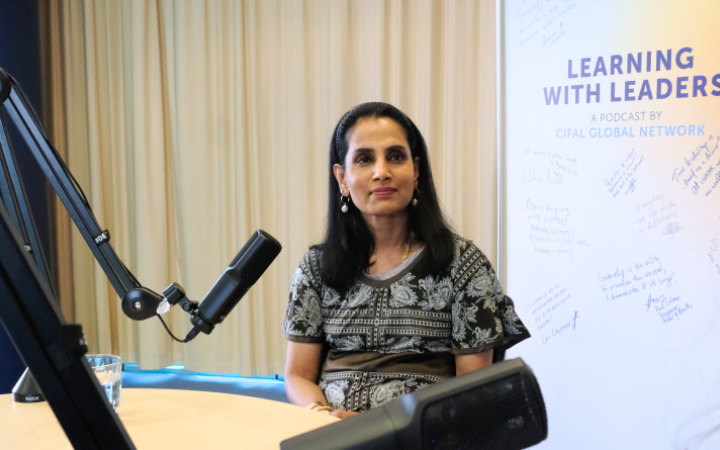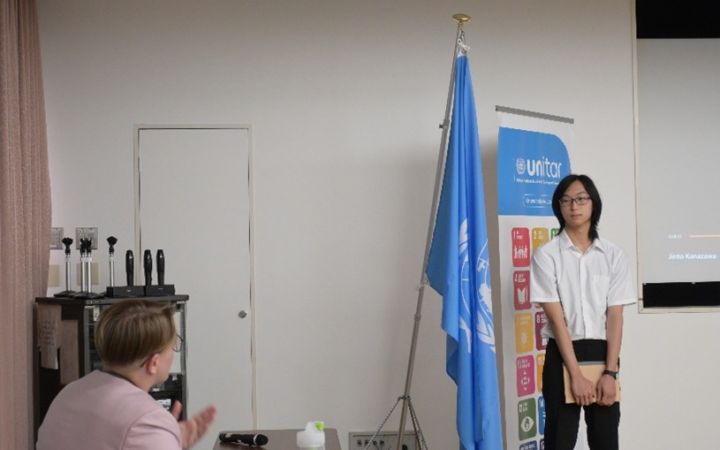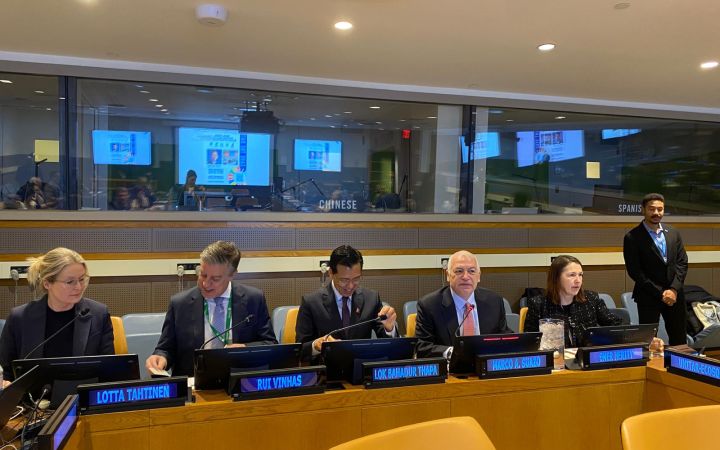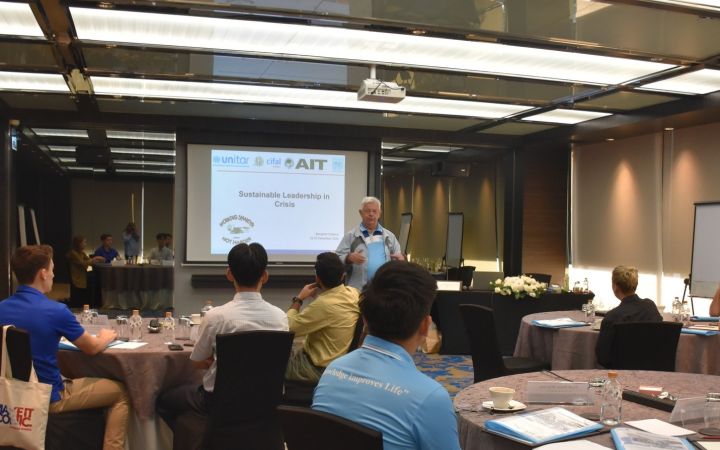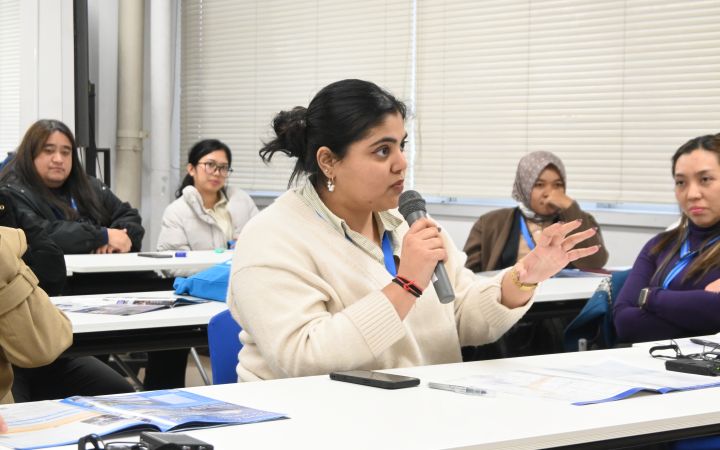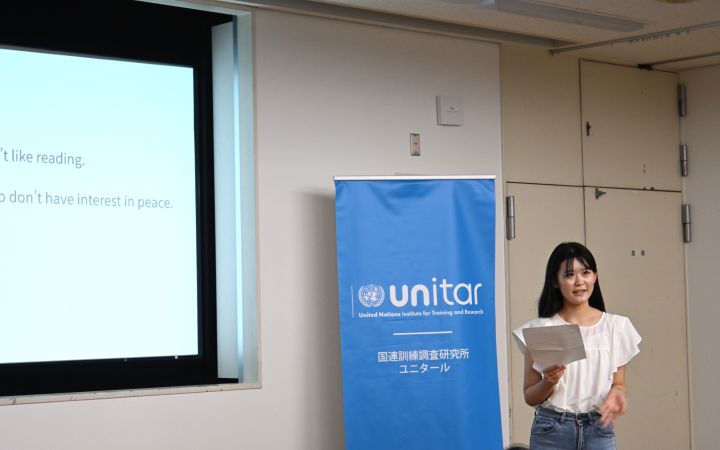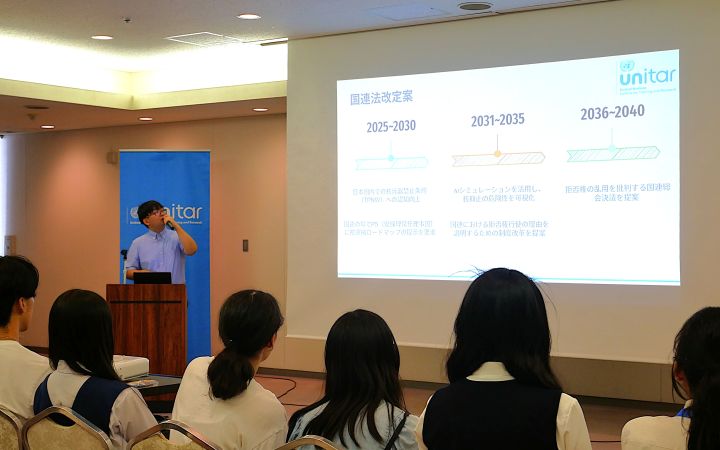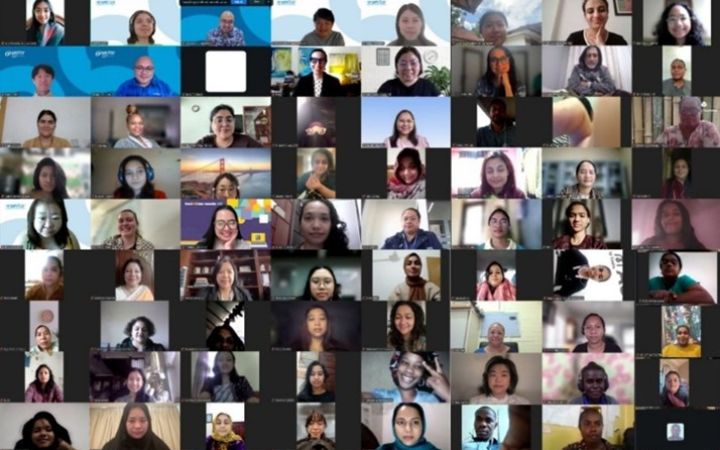Displaying 31 - 40 of 3509
23 January 2025, Geneva, Switzerland - According to the United Nations High Commissioner for Refugees (UNHCR), there are more than 120 million people forcibly displaced worldwide as a result of conflict, persecution or serious violations of human rights, equivalent to one in every 67 people on the planet.
22 January 2026, Hiroshima, Japan - Jinto Kanazawa is a high school student in Hiroshima. In 2025, he joined the United Nations Institute for Training and Research (UNITAR) “SDGs and Digital Futures: Changemaking Through AI and Digital Storytelling” where he learned how digital tools can be used to share personal stories connected to peace and the Sustainable Development Goals (SDGs).
19 January 2026, New York, USA — On 14 and 15 January 2026, the United Nations Institute for Training and Research (UNITAR) Office in New York, in partnership with the Permanent Mission of Portugal to the United Nations and the UN Department of Economic and Social Affairs (DESA), convened the Orientation Course on the Work of the Economic and Social Council (ECOSOC) at United Nations Headquarters, as part of activities marking ECOSOC’s 80th anniversary. The two-day course brought together delegates from Member States to strengthen their understanding of ECOSOC’s mandate, working methods, and priorities for the 2026 session.
15 January 2026, Bangkok, Thailand – Following several successful editions, the International Training Centre for Authorities and Leaders (CIFAL) in Bangkok has announced the 2026 edition of the Sustainable Leadership in Crisis training course, which will take place from 12 to 15 May 2026 at the Lancaster Hotel, Bangkok, Thailand. The four-day, face-to-face course is organised in partnership with the United Nations Institute for Training and Research (UNITAR), AIT Extension, and the Human Development Forum Foundation (HDFF).
21 January 2026, Hiroshima, Japan - When Mriganika Singh Tanwar from India saw the flyer for UNITAR’s 2024 Sea and Human Security Training Programme, she had just completed her master’s degree in International Relations at Nanyang Technological University, Singapore. At the time, her focus was on international security and strategic technologies. “I found it … fascinating how [this] diverse region – tied by culture, economy, geography and demography – is also connected by two sets of common challenges: sea and human security,” she says.
14 January 2026, Hiroshima, Japan - Hiroshima high school student Nodoka Dekihara learned from an early age about the history of the atomic bombing and peace. As her interest in the wider world deepened through studying abroad and international exchanges, she joined a UNITAR digital storytelling training programme to explore new possibilities for communicating messages of peace.
12 January 2026, Hiroshima, Japan – “Simply advocating for peace and taking action for peace are not the same”, says Yuya Morishita, a third-year high school student in Hiroshima. In 2025, Yuya joined 24 other students in the UNITAR Hiroshima Youth Ambassador Programme.
8 January 2026, Hiroshima, Japan – On 19 November 2025, the United Nations Institute for Training and Research (UNITAR) concluded the first training phase of its “Women’s Leadership in Disaster Risk Reduction Training Programme for World Tsunami Awareness Day 2025”. Over 380 learners from Asia and the Pacific completed the 2-month phase, which highlighted the importance of gender-inclusive leadership and introduced them to core disaster risk reduction concepts, key principles of the Sendai Framework and the Sustainable Development Goals (SDGs), ecosystem- and community-based approaches to disaster risk reduction, and lessons from Japan’s disaster experiences.
1 January 2026, Geneva, Switzerland — The United Nations Institute for Training and Research (UNITAR) has been named the new administering organization of the Inter-Organization Programme for the Sound Management of Chemicals (IOMC) and host of its Secretariat, marking a new chapter for the global partnership after three decades of coordinated action on chemicals and hazardous waste management and continuing the role played by the World Health Organization (WHO) since 1995.
30 December 2025, Hiroshima, Japan – Takahiro Masuda is a university student in Hiroshima majoring in bioinformatics, where he studies the intersection of healthcare and information technology. Raised in Nagasaki as a third-generation atomic bomb survivor, Takahiro joined the UNITAR SDGs and Digital Futures: Changemaking Through AI/Digital Storytelling training programme, seeking new ways to convey messages of peace through digital technology.


